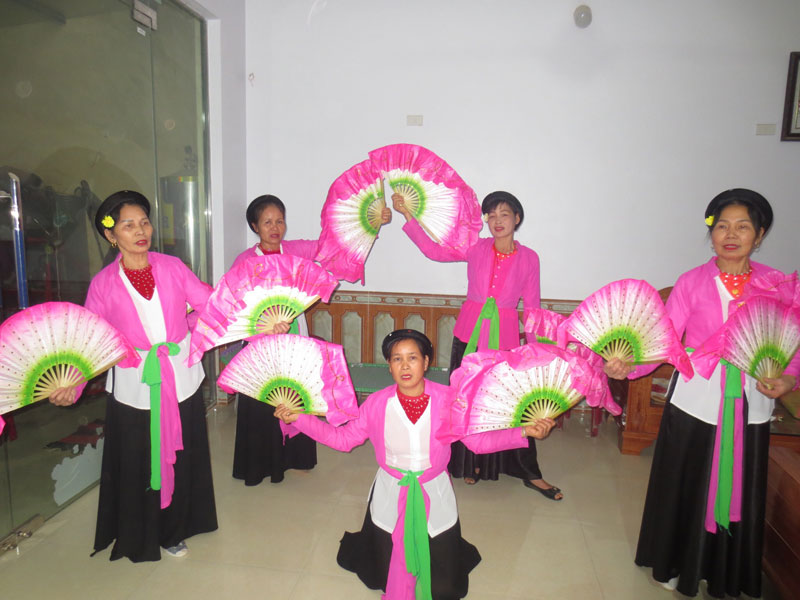



Renowned as the land of cheo of Yen Thuy
district, Ngoc Luong commune is home to a number of excellent cheo singers and
beautiful cheo melodies. Some cheo works composed and performed by Ngoc Luong
people have been aired by Radio the Voice of Vietnam such as "Tinh que moi”,
"Tien con len duong”, and "Tim ve que me”.
However, due to the influence of modern music,
audience has neglected cheo, leading to the gradual disintegration of the cheo
of Ngoc Luong. Facing that fact, local people have gathered to revitalise the
traditional art. After days of hard work, they gather and are together absorbed
in practicing cheo melodies accompanied by the sounds of two-chord guitars and
drums. The amateur artists want to share the passion for cheo while preserving
and developing the art of the homeland.
With 27 members at its inception, the Ngoc Luong
cheo club now has more than 50 members with the oldest 77 years old and the
youngest 12. All of the club members are talented and have a passion for cheo.
Club leader Quach Cong Son said when it was newly established, the club
encountered an array of difficulties. Some members even wondered whether the
club would exist when it still lacked funding for buying costumes and musical
instruments then. Meanwhile, as the club members hadn’t received any cheo
training before, their singing and performing skills were also limited.
Nevertheless, with passion and solidarity, the club members have strived to address
difficulties. The audience’s concentration and applause in tandem with cheo
rhythms gave us momentum to continue practicing to popularise cheo.”
Trinh Thi Khanh, a resident in Lien Tien hamlet,
said: "We love cheo because cheo reflects the simple life and the aspiration
for a peaceful and happy life of farmers. In ancient cheo plays, good always
triumphs over evil. Through humorous and smart clowns of cheo, people criticise
bad customs and habits in society. Therefore, after days of hard work, we
gather and practice cheo, singing in a passionate manner. Not only singing for
one another to listen to, we also often perform in the district and other
areas. Aside from ancient cheo extracts, the club has also created many modern
works praising the soul beauty, the Party, beloved Uncle Ho, and the love for
the hometown and the country. The audience has highly valued those works’
content and emotion which are expressed through each simple and humane word and
melody.
With its dedication to each play, the cheo club
of Ngoc Luong has helped popularise the commune’s political and social tasks
such as building new-style rural areas, land consolidation, keeping solidarity,
and building civilized families. For example, the play "Dong que doi moi”
(Countryside reforms) successfully encouraged local people to carry out the
land consolidation policy. Cheo has been performed more regularly, and more and
more people have come to enjoy the art. The club now often makes performing
trips so that the cheo of Ngoc Luong can be known not only in Yen Thuy but also
charm the audience in many other localities./.
At the end of May, the Hoa Binh Provincial Ethnic Arts Troupe organized a series of performances for residents in Region 2 and Region 3 communes across the province. Bringing art to ethnic communities in remote, isolated, and especially disadvantaged areas has become a meaningful activity. These are not merely artistic performances but also journeys to disseminate cultural values, enrich spiritual life, and contribute to preserving the cultural identity of ethnic minorities.